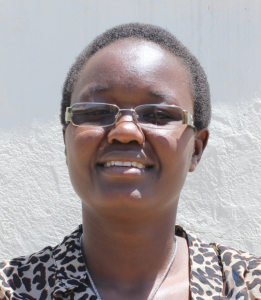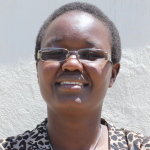Daily access to clean, safe drinking water is a high priority for Shihome Primary School in Western Kenya, as they currently have no way to store water for the large student body of 1,251 students and 25 staff.
Students must travel outside their school compound to a community borehole to get water and haul it back. The borehole has an electric pump that pushes water to a single standpipe (faucet). That is a single faucet for over 1,000 students, along with the others in the community that use the well.
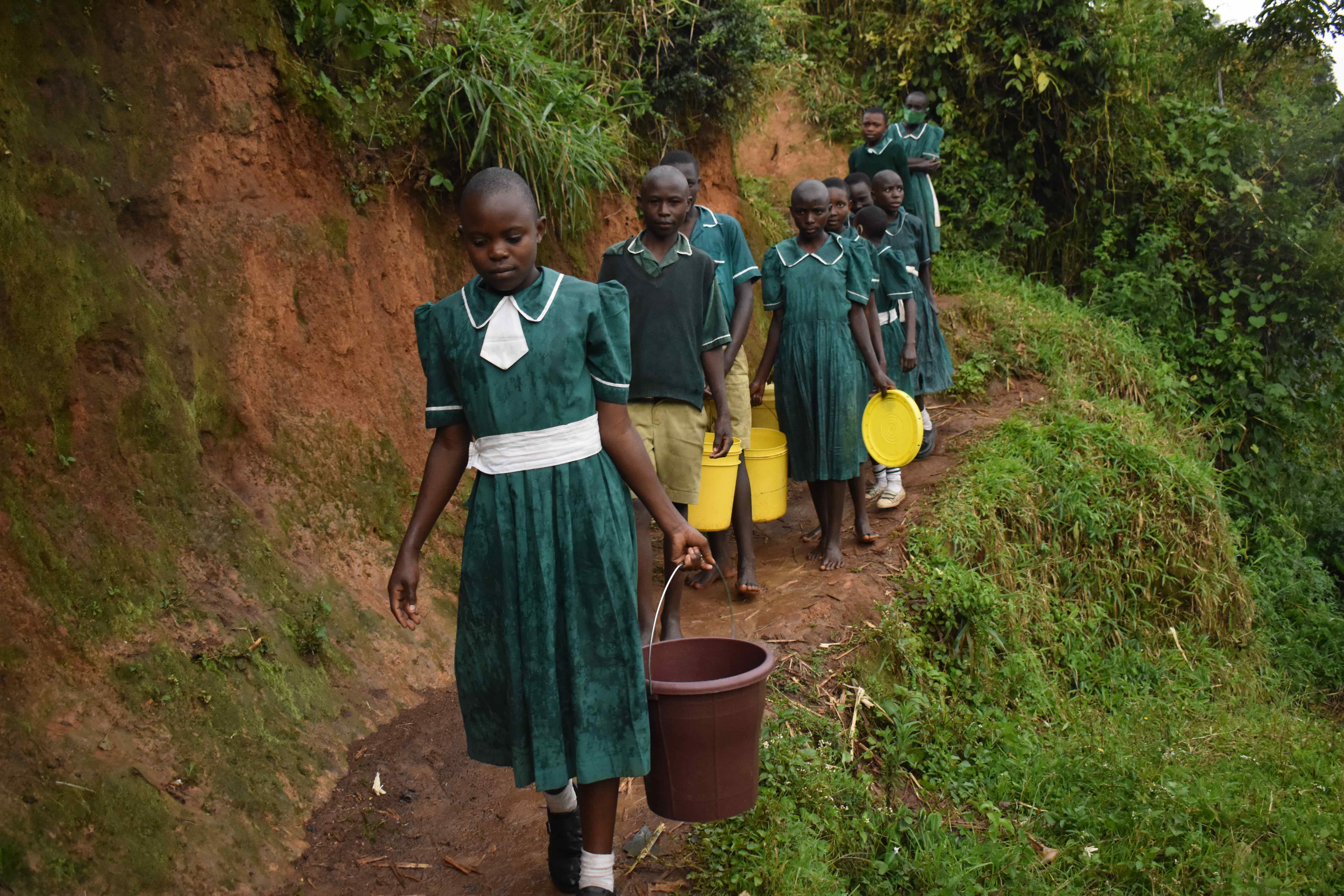
The school must pay 3000 Kshs (USD 28) per term to access water that is often restricted. The pump motor for the borehole breaks down, often taking months to be repaired and become functional again.
Teacher Boaz Muchika (shown below at the single standpipe) expressed his concern for students, "As a teacher, I feel so bad when my pupils find it hard to get water, which we all depend on for survival."
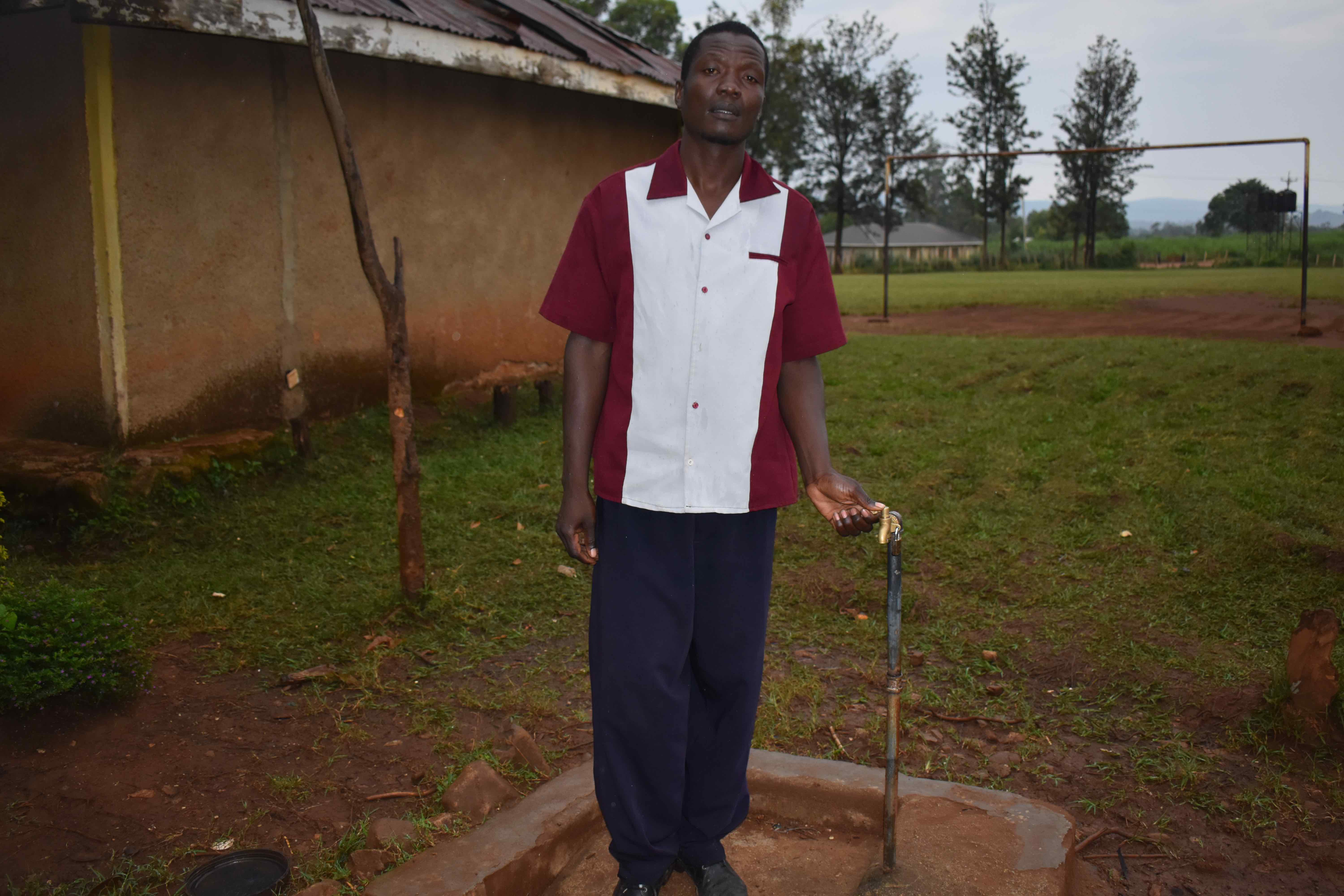
He went on to share: "Seeing them queuing and carrying water from home makes me sad because they need to be learning in class and not carrying water from home or queuing for so long at the standpipe. Carrying water from home is not good at all because we don't know the sources of water where the pupils are getting water."
Even if the pump is functional, the long line to collect water from the single pipe means that students are often late for classes or do not collect the needed water and go without for the day.
Robai (seen below carrying water), a young girl who attends the school, commented, "I waste a lot of time queuing at the standpipe, and sometimes I can queue and not get water because the bell will ring before I get water. This forces me to go to class thirsty and tired, too."
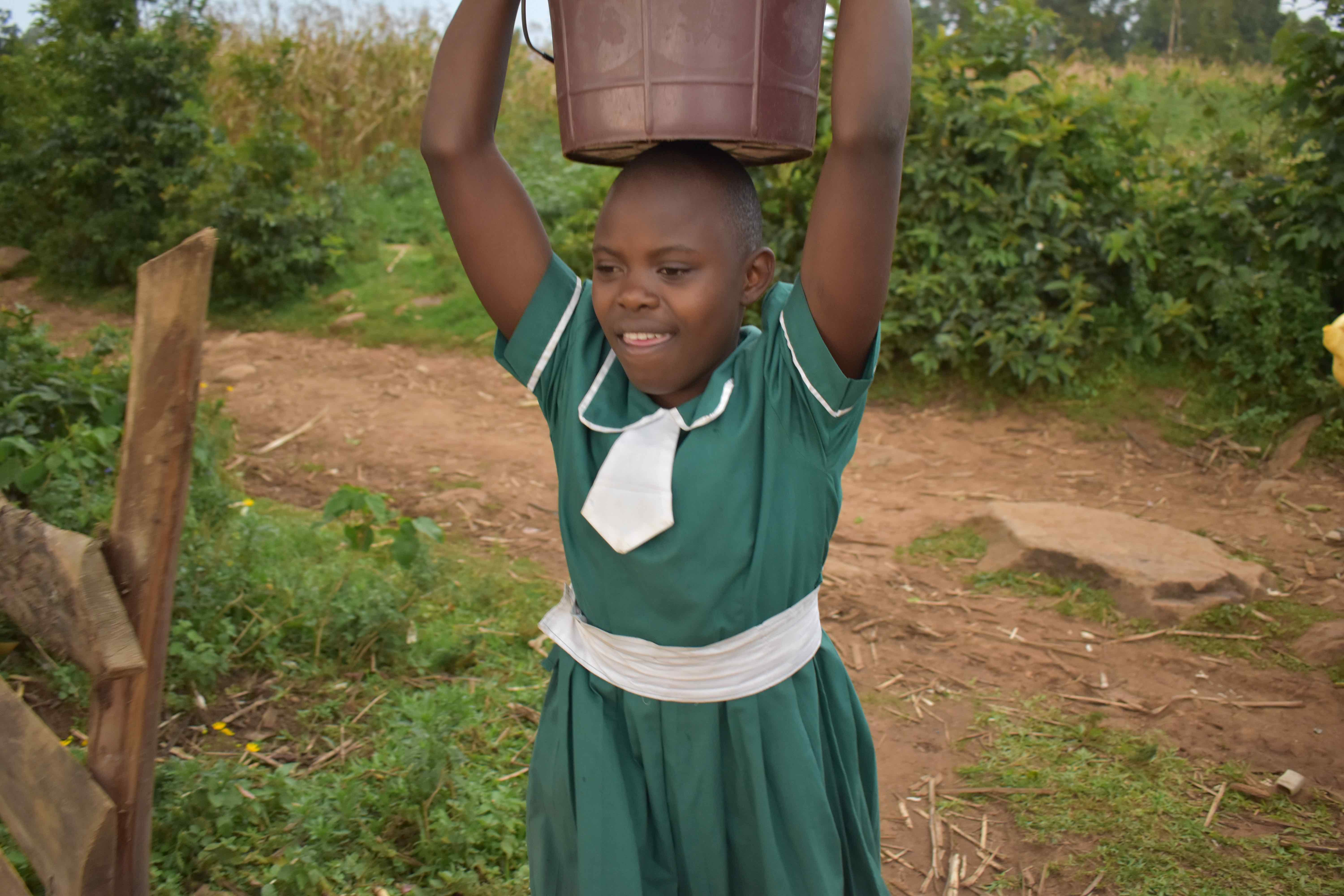
When the borehole is not functioning, children must look for alternative water sources or carry water from home. There is a protected spring where students can collect water on their way to school or during their lunch or recess breaks if they have the time and energy. However, the protected spring is quite a distance away from the school, down a steep, narrow path. Fetching water there is a tiring, labor-intensive, and dangerous task, especially when it rains and the way becomes slippery.
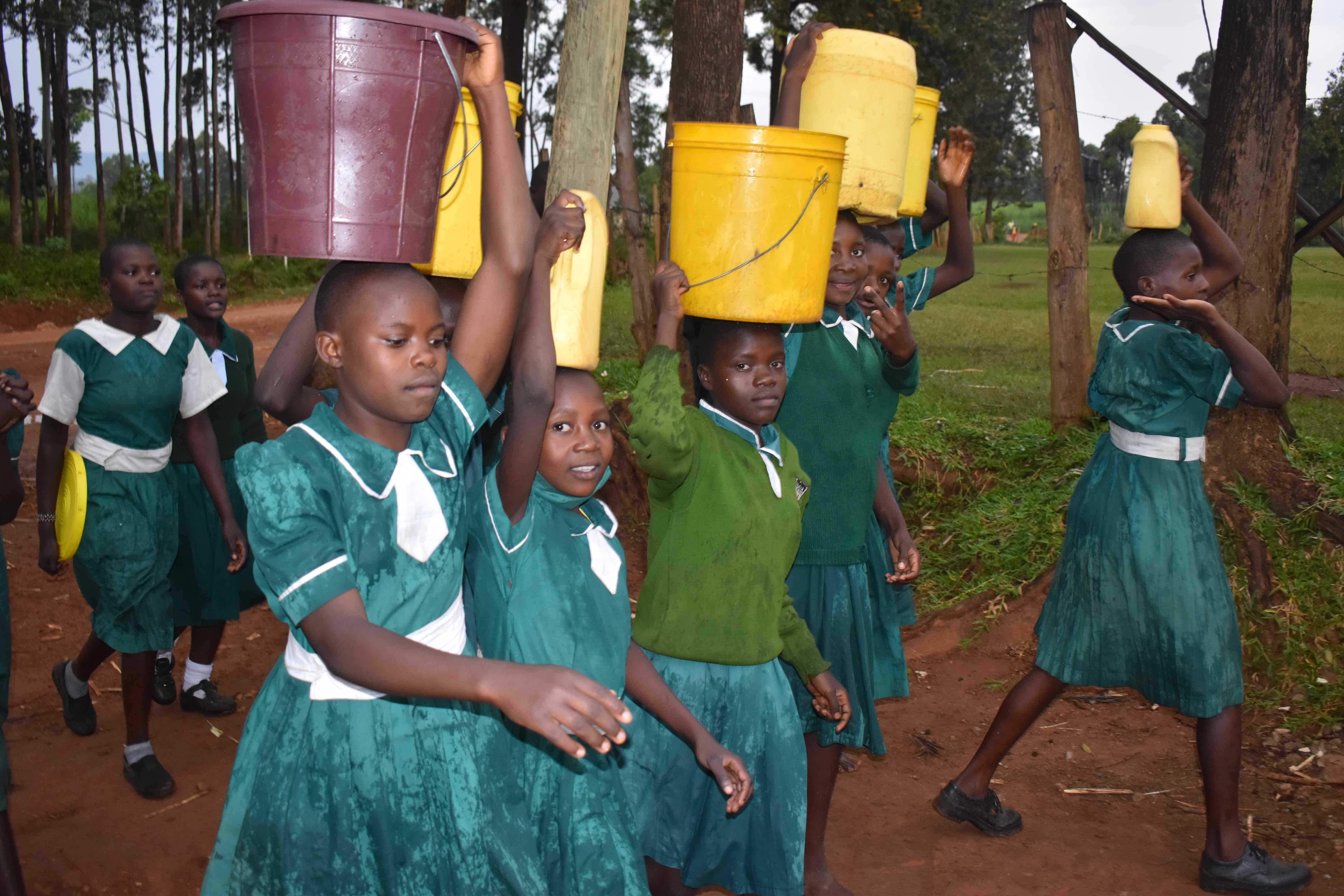
Robai described the challenges she faces by collecting water at the nearby spring. "Carrying water from home is not easy too. Going to the spring to fetch water first, then later carrying [the] water to school is a task of its own, and it drains me both mentally and physically."
The school needs a well that will provide enough water to serve the school population so students can have more time in class and more energy.
What We Can Do:
New Well
We conducted a hydrogeological survey at this school and the results indicated the water table beneath it is an ideal candidate for a borehole well. Due to a borehole well's unique ability to tap into a safe, year-round water column, it will be poised to serve all of the water needs for this school's large population, even through the dry months.
The school will help collect the needed construction materials such as sand, rocks, and water for mixing cement. They will also provide housing and meals for the work team, in addition to providing local laborers. We will complement their materials by providing an expert team of artisans and drilling professionals, tools, hardware, and the hand-pump. Once finished, water from the well will then be used by the school’s students and staff for drinking, handwashing, cooking, cleaning, and much more.
Handwashing Stations
The student health club will oversee the two new handwashing stations we will provide, and make sure they are kept clean and in working condition. The club leaders will fill the handwashing stations with water daily and make sure they are always supplied with a cleaning agent such as soap or ash.
VIP Latrines
We will construct two triple-door latrine blocks using local materials that the school will help gather. Three doors will serve the girls and three doors will serve the boys. All of these new latrines will have cement floors that are designed to be easy to use and to clean. And with a borehole right on school property, there should be enough water to keep them clean.
Training on Health, Hygiene, COVID-19, and More
We will hold a one-day intensive training session with students, teachers, and parents. This training will cover a wide range of topics including COVID-19 symptoms, transmission routes, and prevention; personal and environmental hygiene; and the operation and maintenance of the borehole, latrines, and handwashing stations. There will be a special emphasis on handwashing.
Our team of facilitators will use a variety of methods to train, including participatory hygiene and sanitation transformation, and asset-based community development. We will initiate a student health club, which will prepare students to lead other pupils into healthy habits at school and at home. We will also lead lectures, group discussions, and provide illustrative handouts to teach health topics and ways to promote good hygiene practices within the school including handwashing and water treatment. We will then conduct a series of follow-up trainings before transitioning to our regularly scheduled support visits throughout the year.
We and the school strongly believe that all of these components will work together to improve standards at this school, which will help lead to better student academic performance and will help unlock the opportunity for these students to live better, healthier lives.

 Borehole Well and Hand Pump
Borehole Well and Hand Pump
 Rehabilitation Project
Rehabilitation Project












